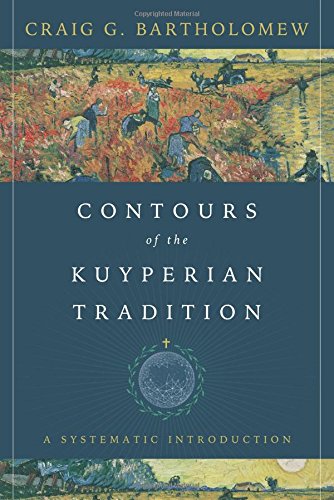A Brief Book Summary from Books At a Glance
By Steve West
Introduction
This book explores the main elements of Kuyper’s thought, and demonstrates how the Kuyperian tradition has been developed since his time. Evaluation is offered on his thought, and recommendations are made for further implementation and development. The author is very positive about the resources that are to be found in the Kuyperian tradition, and he believes that now is the right time to discover and explore Kuyper’s thought, applying it in the current milieu.
Table of Contents
Introduction: Seeking the Welfare of the City
Chapter 1 Abraham Kuyper’s Conversion
Chapter 2 Creation and Redemption
Chapter 3 Scripture
Chapter 4 Worldview
Chapter 5 Sphere Sovereignty: Kuyper’s Philosophy of Society
Chapter 6 The Church
Chapter 7 Politics, the Poor, and Pluralism
Chapter 8 Mission
Chapter 9 Philosophy
Chapter 10 Theology
Chapter 11 Education
Chapter 12 The Need for Spiritual Transformation
Summary
Chapter 1: Abraham Kuyper’s Conversion
Abraham Kuyper was the son of a pastor, but he was not converted until he was an adult. Before his conversion he had studied liberal theology. The Lord used the novel The Heir of Redclyffe to show him the sinful state of his soul. In John Calvin, Kuyper found a theological foundation for faith and life. He consciously built his theology on Calvinism, and was a vehement opponent of theological modernism. A high view of Scripture was essential to his theological system. The key idea was palingenesis (“rebirth”) which Kuyper took to refer to personal conversion and also to the renewal of creation. The Spirit works to change individual hearts, and the entire cosmos is being renovated by Christ. Christianity needed to be embraced as an entire world-and-life view, which was theological, philosophical, and practical. A pure and renewed church was essential for the nurturing of the Christian life. God’s kingdom is over all and Christ is reigning over all. As a result, the church needs to engage culture, and those in the church need to be born again. The church’s power comes from Christ its head.
Chapter 2: Creation and Redemption
The sovereign God who comes to us in Christ is the center of Kuyper’s theology. Christ saves individuals, but he is also redeeming the entire creation. As a result, the sacred/secular dichotomy is false—Christians need to engage every area of life. Christ saves our souls, but this particular grace doesn’t rule out the common grace of God which is caring for the entire creation. God’s grace is linked to nature (not just spirit) since he is restoring it and rules over it. The goal for creation is eschatological renewal, in organic harmony with the potential of the present order. Herman Bavinck came to see that the relationship between nature and grace was essential to Reformed thought. Because of what Christ has done in incarnation and resurrection. . .
[To continue reading this summary, please see below....]The remainder of this article is premium content. Become a member to continue reading.
Already have an account? Sign In
